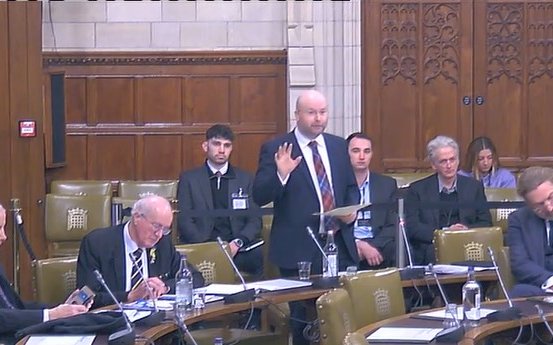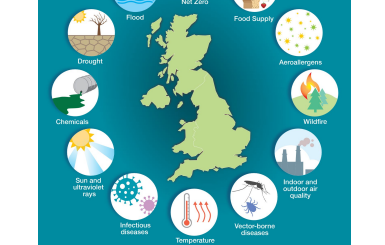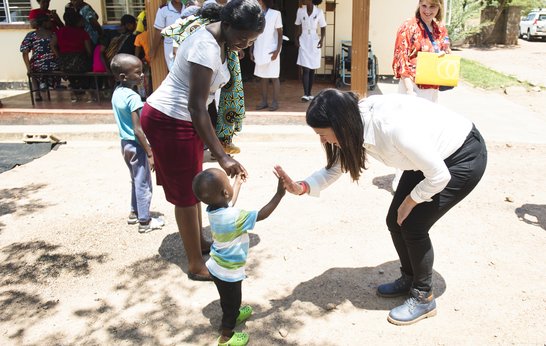This week (9 January 2024), Uniting to Combat NTDs were delighted to attend a debate at Westminster Hall where UK members of parliament explored the role of the UK in ending malaria and neglected tropical diseases (NTDs).
Championed by the APPG on Malaria and NTDs and led by SNP MP Patrick Grady, the cross-party debate was a great opportunity to put the spotlight on NTDs ahead of World NTD Day on 30 January and rally ministers to endorse and deliver on this year’s theme of ‘Unite, Act, Eliminate’.
Patrick Grady’s opening remarks set the scene, instantly recognising the human impact of NTDs as he reflected on the APPG for Malaria and NTDs’ trip to visit NTD projects in Malawi last year.
He noted how “the human cost of neglected tropical diseases is incredibly high” yet “investment in NTDs really is a best-buy in global health intervention.” He concluded by recognising that investing in NTDs delivers against the UK’s priorities in so many different areas, saying:
“If we want to reach the Sustainable Development Goals, unlock wasted economic potential, change the nature of aid flows and release new forms of finance to help developing countries drive poverty reduction and grow their economies, investing properly and effectively in tackling NTDs is essential.”
Opening to the floor, Tan Dhesi, UK Labour MP for Slough, raised concern on the rise of dengue fever, and highlighted the important link between climate change and NTDs. He proposed the questions:
“Does the hon. Gentleman agree that climate change has had an alarming impact on malaria and neglected diseases? Locally acquired cases of malaria have now been found in the US, and a recent UK Health Security Agency report concluded that dengue fever could be transmitted in London by 2060. Does he agree that addressing the climate crisis is imperative in our fight against these diseases, and that this global challenge requires a unified global response?”
Conservative Member of Parliament for Aldridge-Brownhills, Wendy Morton, spoke on what the UK is currently doing in this field, including the UK’s active contribution to the SDG 3 target, the ‘Ending Preventable Deaths strategy’, and contributions to the Global Fund. She highlighted how good international development and investing in malaria and NTDs is also about "protecting and developing our interests, and honouring the UK’s international commitments."
Chris Law, MP for Dundee West and a member of International Development Select Committee, offered powerful arguments on why investing in NTDs is so vital. He highlighted how the UK was once a global leader in tackling those diseases, particularly in research and innovation, but “that contribution has been fundamentally undermined by the reckless decision to cut ODA from 0.7% of GNI to 0.5%”. He pushed the need for tangible action by the UK government to make up the shortfall left by the cuts. He concluded by saying:
“The UK Government must restore its credibility and urgently scale up its contribution to the eradication of these diseases. Given the vast numbers of people affected across the world, there is no excuse for neglecting them. The elimination of malaria and neglected tropical diseases is possible, and it will be a small step to a more equal world when it is achieved.”
Co-chair of the APPG for Malaria and NTDs and Shadow Minister for Asia & the Pacific Catherine West spoke a lot on investing in NTDs as a global development success story, highlighting NTD elimination successes around the world. She said:
“Despite the difficulties in surmounting the challenges we face, the elimination of these diseases is possible. 50 countries, including 21 in Africa, have eliminated at least one neglected tropical disease, marking the halfway point toward the target of 100 countries set for 2030. As a result, 600 million fewer people globally require interventions against neglected tropical diseases than in 2010. Bangladesh, supported by the UK and other partners, is the first country in the world to be validated for the elimination of visceral leishmaniasis, which is the very complicated form of the disease that is fatal in over 95% of cases and has devastating impacts, particularly on women.”
She concluded on the important work that the UK needs to do this month with World NTD Day approaching, pushing for the Minister to agree that now is the time to act.
Anne-Marie Trevelyan, MP for Berwick-upon-Tweed and Minister for Indo-Pacific at the Foreign, Commonwealth & Development Office responded to points made, highlighting the Government’s recently released international development White Paper with the SDGs at its heart, as well recognising the UK’s signing of the Kigali Declaration on NTDs at the 2022 CHOGM meeting and commitment towards continued investment in research and development through ongoing funding to DNDi.
She stated that:
“The UK plays a long-standing and leading role in the fight against malaria and neglected tropical diseases, both as a leading donor and with our world-leading scientific and research capability... “We will continue to lead the fight against poverty and climate change, including, very importantly, on global health.”
Patrick Grady closed the proceedings by reemphasising the key principle of the SDGs to ‘leave no one behind’, and the need to keep this debate front-of-mind whilst election manifestos are put together, saying:
“I hope that today’s debate has, at the very least, raised some awareness, meaning that these diseases will be slightly less neglected going forward, and that we can continue to unite, act and can, ultimately, eliminate malaria and other neglected tropical diseases so that they do become eradicated tropical diseases.”
A big thank you to Patrick Grady for leading the debate, the APPG on Malaria and NTDs for championing and proposing it, and to all speakers for their contributions. We look forward to continuing to work collaboratively with the UK to ensure that they deliver on commitments made towards ending NTDs.
Watch the full debate on Parliament Live TV.
Read the full transcript of the debate on UK Parliament’s website.
Read Patrick Grady's reflections in this Parliament News article - The role of the UK in ending Malaria and neglected tropical diseases.



